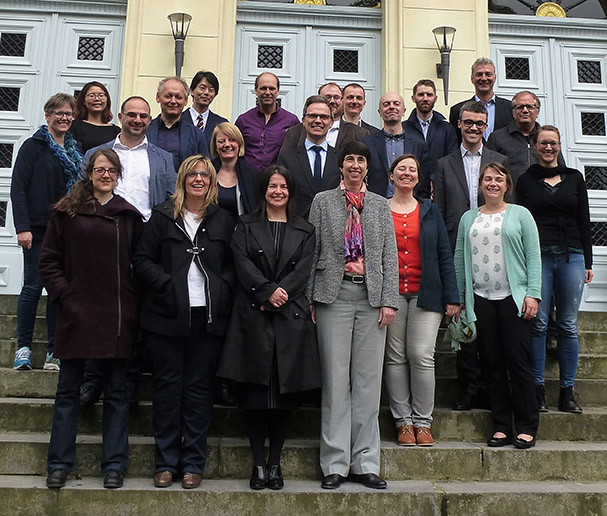Install the app
Install this application on your home screen for quick and easy access when you’re on the go.
Just tap then “Add to Home Screen”
Install this application on your home screen for quick and easy access when you’re on the go.
Just tap then “Add to Home Screen”
Install this application on your home screen for quick and easy access when you’re on the go.
Just tap then “Add to Home Screen”
Latest in the OUP Comparative Politics Series is Organizing Political Parties: Representation, Participation and Power, edited by Susan E. Scarrow, Paul D. Webb and Thomas Poguntke.
This book is aimed at all political observers who want to learn more about the changing roles of political parties in established and newer parliamentary democracies.
Political party organizations play large roles in democracies, yet their organizations differ widely, and their statutes change much more frequently than constitutions or electoral laws. This book investigates how these organizational and resource differences affect the operation of democracy.
Using a unique new data collection on parties in 19 democracies, the book’s chapters test propositions about the reasons for variation and similarities across party organizations. A key finding is that there is much greater within-country organizational similarity than cross-national patterns based on party ideology.
Chapters in the book’s second section investigate the impact of party differences, including the impact of party rules on the selection of female candidates, the links between party decision processes and the stability of party programmes, the connection between party finance sources and public trust in political parties, and whether the strength of the extra-parliamentary organizations affects the behaviour of their elected legislators.
Collectively these chapters help to advance comparative studies of elections and representation by inserting party institutions and party agency more firmly into the centre of such studies.
 'Organizing Political Parties is the first big research output of the Political Party Database project (pictured are scholars at a recent PDDB project meeting in Düsseldorf).
'Organizing Political Parties is the first big research output of the Political Party Database project (pictured are scholars at a recent PDDB project meeting in Düsseldorf).
The PPDB is an ongoing collaboration in which scholars from around the world contribute 'official story' data on party organizations in their countries. The book is based on the 'Round 1a' data for 19 mostly parliamentary democracies; we are currently finalizing Round 1b data for an additional six countries, including more presidential democracies.
The foundations for this project were laid in 2011 at a small research group meeting sponsored by ECPR, and attended by the three book editors plus Ingrid van Biezen, Ruud Koole, Petr Kopecký, Gidi Rahat and Peter Mair.
As this list may suggest, in many senses the deeper foundations for our efforts were constructed by the scholars who collected data for the Katz and Mair Party Data Handbook (1992), many of whom have also been involved in the PPDB project. This Handbook was a groundbreaking project which led to major advances in empirically-based, cross-national studies of party organization. Yet the data collected in this project stopped in 1990.
By 2010 it seemed to be time for an update, because the ensuing decades had seen huge changes in the political landscape – most notably, with new democracies in Central and Eastern Europe, but also with significant shifts in party systems even in established democracies. Even where the changes were less radical, there were obvious shifts in parties’ resource bases (eg the role of subsidies, the size of memberships), in their decision-making procedures (eg primaries), and in the willingness of voters to switch their electoral loyalties. Inspired by curiosity to understand these ongoing changes, we launched this new endeavour.
In undertaking an expanded round of data collection on party organization, our aim has been to systematically capture current practices – not just the ones that make headlines – knowing that for a subset of our countries (the Katz/Mair countries) we could use 1990 (or indeed, even earlier in many cases) as a baseline. With support and enthusiasm from many colleagues, the project grew rapidly out of the initial ECPR research group meeting, and now includes teams covering 25 countries.
The PPDB project offers two types of outputs: data and analysis. In terms of data, Round 1a data is already freely available through our website, and more will be added in future years. In terms of analysis, this book represents our first major research contribution. We hope that many who read the book will be intrigued enough to download the data and incorporate it into their own research.'
Keywords: Political Parties